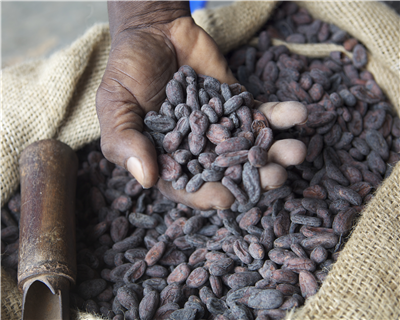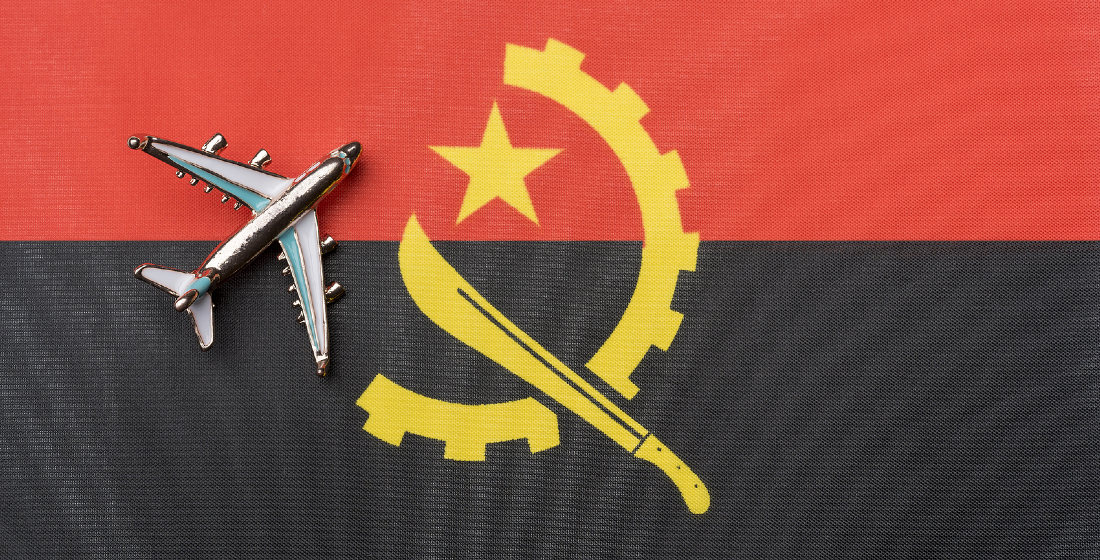Ghana’s Cocobod sets the standard
Now in its 21st year, the annual pre-export financing of Ghana’s cocoa harvest is an example of how African agriculture really can attract big international banks – and increasingly cheaply – given the right mix of government involvement, industry organisation and deal structure.

Now in its 21st year, the annual pre-export financing of Ghana’s cocoa harvest is an example of how African agriculture really can attract big international banks – and increasingly cheaply – given the right mix of government involvement, industry organisation and deal structure.
The annual Ghana Cocoa Board (Cocobod) transaction is a “historic legacy structure” that was born out of Ghana’s resistance to the wave of IMF-ordered privatisation reform that swept Africa in the 1980s and 1990s, says Julian Madgett, head of commodity and structured finance at ICBC Bank in London.
Unlike other countries, which followed the IMF’s commands to the letter, “Ghana did a very slick thing,” says Hiren Singharay, regional head of syndications, Europe, for Standard Chartered in London. Although cocoa production and distribution was privatised, the government-owned Cocobod was kept in place as a final link in the value chain – a crucial point of contact between the domestic industry and international buyers and banks.
In Ghana, a handful of private companies with a government license are responsible for inspecting and buying smallholders’ cocoa. They then deliver the cocoa to Cocobod, which buys it from them and stores it in government-owned warehouses.
By the time banks step in to finance the purchase of the cocoa by big international companies like Nestle, the risk of everything from crop disease to transportation has already been stripped out of the equation. Instead, they are dealing with quality-checked cocoa, a multinational corporate buyer and a quasi-sovereign seller, says Singharay, who was involved in Cocobod’s first pre-export financing and comments here in a personal capacity.
This has proved a “lynchpin” to the syndicated deal, which effectively draws together thousands of three-acre farmers into one bankable body that credit committees accept as Ghana risk, he says. As a result, the deal is nearly always oversubscribed and the cost of financing for Cocobod continues to fall.
It has enabled Cocobod to raise over $15 billion since its first such transaction in 1993, notes Madgett.
Trickle-down effect provides smallholders with stability
The Cocobod transaction has also provided a mechanism under which money flows down the value chain to smallholders in a stable, predictable way.
Farmers know they will receive a specified percentage – typically around 70% - of the free-on-board (fob) cocoa price for their produce, says Singharay. This gives them confidence to replant, encourages future generations to remain in farming and has helped Ghana’s cocoa production to quadruple over the past decade.
Because of the way its industry is organised, “cocoa has meant prospects and stability and social harmony for Ghana,” he says. “It has not done that in Ivory Coast,” were farmers remain exposed to the whims of big, private cocoa buyers.
Cocobod is also notably progressive in its transparency, says Madgett. It makes public statements detailing what percentage of its export earnings in local currency go to farmers. This incentivises quality production and gives farmers a stable, predictable and timely income.
The existence of Cocobod also helps ensure that small family-run farms get access to high-quality beans and fertilisers, according to another banker involved in this year’s transaction. “In that respect, [Cocobod] has a great impact,” says Madgett.
Indeed, Cocobod pledged in June to extend this assistance, promising free fertiliser for farmers in a bid to overtake Ivory Coast once again as the world’s biggest cocoa producer.
Cocobod’s research and development facility has also continued to be a good source of innovation on husbandry and agronomy, says Madgett. This has enabled smallholders to replant with acreage with more disease- and drought-resistant cocoa trees, improving their yield and the overall country’s cocoa production growth.
Political risk and smuggling remain sore spots
Compared with the fragmented privatised systems that you see in other surrounding countries, “Ghana has a relatively centralised, supply-primed and well-organised national system,” says Madgett.
There are weak points though, bankers say.
Cocobod’s state-owned status exposes lenders to an element of political risk. For example, its balance sheet has in the past been used to service obligations not connected with the cocoa industry. A build-up in recent years of Bank of Ghana cocoa notes, which ultimately had to be refinanced, is another concern.
There is also a small side risk of smuggling between Ghana and the Ivory Coast. Because Ghana’s cocoa prices have historically commanded a premium in the market, this has raised question of what proportion of Ghana’s total crop truly comes from Ghana and what proportion has been smuggled from Ivory Coast.
In recent months that trend has actually reversed, with Ghana’s weaker currency – down 20% against the US dollar in the first six months of this year alone - making smuggling into Ivory Coast more lucrative. Cocobod’s regulator pledged in June however to raise its fixed cocoa price next season to a level that counteracts that.
As the world’s biggest cocoa producer, Ivory Coast would seem an obvious candidate for a Cocobod-scale structured syndication. However, despite on and off discussions, no deal has ever got off-the-ground. And nor is it likely to with the industry organised as it is, bankers say. Indeed, across African soft commodities in general, only Mali’s cotton industry has ever managed to pull off anything similar.
Changing of the guards
Six relative newcomers were named in May 2014 as bookrunners for this season’s crop financing, which as usual should close in September.
Unusually, German banks dominate as the mandated lead arrangers (MLAs), with Commerzbank, Deutsche Bank, DZ Bank and KfW IPEX-Bank being joined by Barclays and Natixis. Most of the usual suspects for African agriculture lost out in the bidding.
Some of the MLA banks in this year’s deal have previously not participated in the transaction and, if they have, not in a leading position, acknowledges a banker at one of this year’s bookrunners.
It is not hard to see the attraction though, he says. As well as this being the African agriculture syndication, banks appreciate the open tender process, which allows them to club together and pitch their proposal, without much interference from Cocobod.
Also, Cocobod “acting as a fronting body” gives banks a degree of confidence that has proved justified over time, he says. The transaction has an “excellent track record” and Cocobod has never repaid late.
At $1.6 billion, the one-year deal is bigger than 2013’s $1.2 billion transaction. Pricing is also believed to have fallen yet again – to a rumoured 55 basis points (bp) over Libor, from 75bp last year.
Even if pricing falls further, Cocobod will probably continue to attract big banks, and especially those who don’t otherwise have a strong Africa presence but want to ‘tick boxes,’ says Singharay. In this way, Cocobod is similar to Angolan oil company Sonangol, which historically has been the only other African commodity risk that many banks will touch.
Meanwhile, banks with a deeper presence in Africa, “are all either walking away or reducing our exposure” to Cocobod, he says. “Our common view is let other people play in this field.”
Changes ahead?
Ghana’s biggest licensed cocoa buyer will break with tradition this year by borrowing less from Cocobod. Produce Buying Co will borrow 400 million cedis from the board this year, down from 450 million last year, it said in March, citing rising inflation and domestic borrowing costs. It will seek to plug the gap with finance from government agencies and banks. The cost of borrowing from Cocobod had by March risen to around 18% from 16%, according to deputy finance manager Osei Manu.





